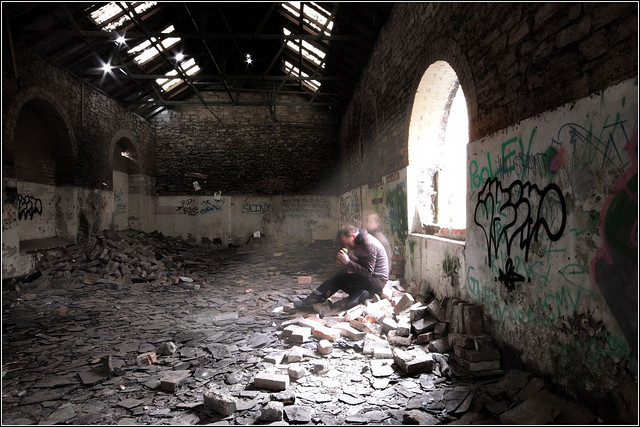As I was contemplating writing this piece, I felt anger well up within me, like volcanic lava, ready to spew over the rim.
The news feed on social media has been reeking of stories lately about uncovering of alleged perpetration of abuse—sexual, emotional and physical—by celebrities whose images are forever tarnished as a result.
A Canadian musician and talk show host.
A man who played a minister on a family-oriented show.
A beloved comedian and actor from my home town of Philadelphia.
Clergy and coaches have long been under scrutiny since their own scandalous behaviors were brought into the light. Right alongside of them are tales of teachers who have had relationships with students and justified them in the name of “consent” from the adolescents, most of whom have been boys.
For that one in particular, a double standard exists; there’s a “good for you, atta boy” attitude that he should be lucky to be hit on by a female teacher.
If the situation were reversed (think Sting’s Don’t Stand So Close to Me) with a male teacher and a female student, outrage would ensue.
In our culture, we set boys up to be victimized and then are surprised if they in turn suffer addiction, depression, suicidal ideation and “paying it forward” by abusing others.
What do these events have in common? The belief that it is acceptable for someone to do harm to another in the name of entitlement.
If someone is bigger, stronger, in a position of authority or financial superiority, then they may feel they have the privilege to do as they please, with little or no regard for the rights of those with whom they are interacting.
This is so, whether their victims have fallen sway to their charisma, or are in fear for their safety or reputation if they do have the courage to resist or report. I have long worked with abuse and trauma survivors as a therapist—30-some years of hearing stories that would make your hair stand on end.
I have cried along with them in some cases and held a visceral sense of indignation and a “How dare you do this?” to the unseen (to me), but all too real and visible person, in the life of the one who sat before me. He or she would be spilling his or her guts out, so that symbolically, afterward, I would feel a need to sweep up viscera and take a shower myself, to wash away the vicarious traumatization that I would be experiencing.
Having grown up in a family in which addiction and abuse were blessedly absent from my home, I had no frame of reference for such treatment by one human being to another, or many others. As a therapist, I understand in theory and observation the dogmatic statement, “Hurt people hurt people.” And I add, “but they don’t have to.”
A corollary that I heard recently is, “Open hearts open hearts.” It is when survivors of abuse open their own hearts to compassionately perceive themselves in the aftermath, so that they can heal, then the cycle of abuse can be broken.
That’s merely one piece of a multi-fragmented puzzle. Another is speaking up. People are questioning why it took so long for survivors of celebrity abuse to share their stories or to return for more abusive treatment after the first time something occurred.
I don’t know the history of those who are now stepping out of the closet of fear; perhaps abuse was part of their lives, maybe being in denial of what happened is a factor; certainly intimidation and shame are hitch-hikers. Although I hold the perpetrators solely accountable for their actions, I hold the witnesses responsible for knowing about it and doing nothing to stop it.
A cycle of secrecy keeps it going.
Remember the Jody Foster movie called “The Accused,” in which her character is gang raped in a bar and not only are the men who assaulted her prosecuted, but those who stood by and cheered it on?
I read a story today about a friend of one of the multiply accused who said that not only had he covered for this man, but had stood guard at the door. He was amply aware of what had been happening for years, and left the situation when his conscience could no longer allow him to do so.
Bullies continue to intimidate when given the arena to do so. When their deeds go unacknowledged. When people give covert approval and look the other way.
If it was your loved one who was on the receiving end of such treatment, I would hope you would indeed express your indignation and stop the pain. I wonder if those whose personal desires, in their minds, superseded the wellbeing of those who are now making their voices heard, considered that they would ever be found out.
If they had contemplated the possibility, did they care? Had they, like others with a touch or more of narcissism, believed themselves to be untouchable? What if each of us could look into our conscience and decide how the action we are about to take will impact on the other(s) with whom we want to interact?
Is someone’s pleasure worth harming another?
I invite each of us to practice the concept of ahimsa with regard to our relationships with the people with whom we cross paths. It is a Sanskrit word that translates to non-violence, in thought, word and action.
We would create a culture of safety for everyone, rather than the rape and abuse culture that exists. The world would be a saner place and the disillusionment that many of us are feeling as our s/heroes are falling off their pedestals would likely dissipate and the shadow selves that many hide, could see the light of day and the healing can begin.
Love elephant and want to go steady?
Sign up for our (curated) daily and weekly newsletters!
Author: Edie Weinstein
Editor: Renée Picard
Image: Ben Salter at Flickr







Read 0 comments and reply